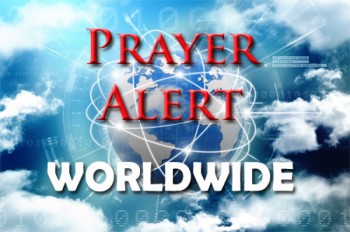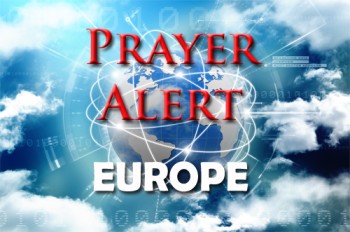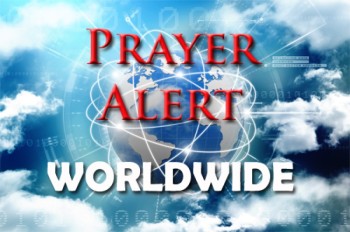Displaying items by tag: israel
USA: Netanyahu tells Congress Israel’s ‘fight is your fight’ amid boycotts and protests
Israeli Prime Minister Benjamin Netanyahu delivered a fiery speech to a joint session of the US Congress, lauding American support for Israel’s war in Gaza while offering little on ceasefire negotiations. He emphasized that Israel's fight against its enemies is also America’s fight, as House and Senate Republicans applauded. Meanwhile, the speech was boycotted by dozens of Democratic lawmakers and protested by thousands outside the Capitol, leading to police using pepper spray. Netanyahu's address, which did not provide new details on negotiations for a ceasefire with Hamas, focused on a "total victory" approach. Prime Minister Netanyahu dismissed concerns about civilian casualties in Gaza and denied blocking food aid. He called on the US to expedite military aid to Israel, praising both President Joe Biden and former President Donald Trump for their support. Democratic lawmakers, including Nancy Pelosi and Bernie Sanders, criticized Netanyahu's address, with Pelosi condemning the lack of emphasis on a ceasefire. The speech follows a significant conflict between Israel and Hamas, with ongoing efforts to secure the release of Israeli hostages. Biden and Netanyahu are set to discuss these issues further in an upcoming meeting.
Gaza: at least fifty killed by Israeli airstrikes
At least fifty Palestinians have been killed and many wounded in a series of Israeli airstrikes on Gaza, according to the Hamas-run health ministry. The strikes targeted areas in south and central Gaza, including the humanitarian zone of al-Mawasi and a UN-run school in a refugee camp. The Israeli military (IDF) claimed the strikes targeted Hamas fighters, and it accused Hamas of using civilians as human shields. It also says that half of Hamas’s military leaders and approximately 14,000 ‘terrorists’ have been killed in the last nine months. Since October, over 38,000 people have died in Gaza, with 14,680 identified as children, women, and elderly. The violence has resulted in significant civilian suffering and displacement, with both sides continuing hostilities. In a recent BBC interview, a mother in Gaza has described how her adult son with Down’s Syndrome died after being attacked by an IDF dog: see
Cyprus / Israel / Lebanon: Hezbollah leader threatens wider conflict
Hezbollah leader Sayyed Hassan Nasrallah has warned that no place in Israel would be safe if a full-scale war erupts between the two foes, also threatening Cyprus and other Mediterranean regions. Hezbollah has released drone footage of sensitive Israeli military sites; Nasrallah says that it has a ‘bank of targets’ for precision strikes, and Israel must prepare for attacks by land, air, and sea. He also threatened Cyprus, accusing it of aiding Israel with its airports and bases for military exercises. There was no immediate response from Cypriot authorities; Cyprus has historically allowed Israel to use its airspace for drills, but not its land or bases. In another development, Benjamin Netanyahu has dissolved his war cabinet after two of his opponents resigned from it: see
Hezbollah fires hundreds of rockets after a senior commander is killed
Hundreds of rockets were fired from Lebanon towards northern Israel on 12 June, hours after an Israeli airstrike which killed a senior Hezbollah commander. The Israeli military reported detecting about 215 projectiles, with some intercepted and several causing fires. The death of the commander, Hajj Abu Taleb, has intensified clashes along the border, with Hezbollah using more advanced weaponry and Israeli airstrikes penetrating deeper into Lebanon. Over 400 people have been killed in Israeli airstrikes in Lebanon, including more than seventy civilians. On the Israeli side, fifteen soldiers and ten civilians have died since the conflict began. Meanwhile, Antony Blinken stated that mediators are working to finalise a cease-fire deal after Hamas proposed amendments to a US-backed proposal which aims to ensure a permanent ceasefire and the complete withdrawal of Israeli troops from Gaza. The proposal, announced by Joe Biden, includes these provisions, but Hamas remains sceptical about Israel’s commitment to implementing the terms.
Gaza: Biden and Netanyahu equally desperate?
Joe Biden has proposed a ceasefire plan for Gaza comprising three stages: negotiating a captive exchange, achieving a permanent cessation of hostilities, and rebuilding homes and public facilities. He has urged immediate acceptance of the deal by Israel and Hamas, linking his reputation to its success. While Hamas responded positively, Benjamin Netanyahu’s government remains ambiguous. Biden has claimed Hamas's military capabilities are diminished, suggesting Israel can now withdraw from Gaza. His absence from the Ukraine peace summit (see Europe article) and his focus on Gaza reflect his desperation to improve his political standing amid declining approval. Netanyahu also faces pressure, risking imprisonment for corruption and needing to appease various factions. The ceasefire plan faces numerous obstacles; the complex dynamics and divergent interests involved make achieving a lasting resolution challenging. Meanwhile, Israel has confirmed the deaths of four more hostages taken by Hamas on 7 October: see
Israel / Hamas leaders: ICC prosecutor seeks arrest warrants
On 20 May, ICC chief prosecutor Karim Khan announced plans to seek arrest warrants for Benjamin Netanyahu and other Israeli ministers, and also for three senior Hamas officials. Hamas is charged with atrocities on 7 October and mistreatment of hostages, while Israel is accused of the starvation of Gaza's civilians. Khan, known for his conservative approach, has said that he has not seen compelling evidence that Israeli courts were probing alleged violations of international law). There have been predictable responses from supporters of both sides, but there is a long history of war crime charges facilitating peace by marginalising hardliners. That might help to advance the frustratingly stalled ceasefire negotiations. Within Israel, whose officials’ conduct in Gaza has increasingly made it a pariah state in the minds of many worldwide, the proposed charges will strengthen the movement for a leadership change. Far from an impediment to a ceasefire, Khan’s actions could be a spur.
Gaza: Israel now controls Rafah border crossing, negotiations continue
The Israeli military has claimed it now controls the Palestinian side of the Rafah border crossing between Gaza and Egypt, a crucial point for aid entry and civilian exit amid the ongoing conflict with Hamas. An Israeli tank brigade has secured the crossing. The UN has expressed concern about the significant restriction of Gaza's main aid routes, but the White House has announced the expected reopening of Kerem Shalom, Hamas has criticised the seizure of Rafah, viewing it as a move to thwart ceasefire negotiations led by Egypt and Qatar, which proposed a temporary halt in hostilities and the release of hostages. Benjamin Netanyahu dismissed Hamas's ceasefire claims as inadequate, focusing on stringent security conditions for any deal. UN secretary-general António Guterres said a ceasefire was ‘essential to stop the unbearable suffering of Palestinians in Gaza and of the hostages and their families’.
Gaza: where do truce negotiations stand?
On 29 April senior Hamas representatives headed to Egypt for talks aimed at halting Israel's ongoing military operations in Gaza. Although previous talks have yielded few results, both sides have expressed a willingness to pursue a ceasefire. A new Israeli proposal includes discussions on restoring calm and the release of Israeli captives, potentially in phases. Hamas has been urged by a number of countries, including the USA and the UK to accept this new proposal, but seems reluctant to do so. The talks have gained urgency amid Israeli threats of a ground assault on Rafah, which might be suspended if negotiations progress. For Benjamin Netanyahu, the problem is that if he concedes too much, he would face opposition not just from opposition parties but from some of his own ministers.
USA / Ukraine / Gaza: Biden signs huge aid package
Joe Biden has signed a $95 billion aid package for Ukraine, Israel, and Taiwan, emphasising its importance in enhancing global security. He promised to send the military assistance for Ukraine ‘right away’, with $61 billion allocated for this purpose. The bipartisan bill, approved by the Senate in a 79-18 vote after months of congressional debate, signals America's commitment to its allies. Volodymyr Zelensky hailed the aid as a reinforcement of America's democratic leadership. The package also includes provisions for confiscating Russian assets and imposing new sanctions on Russia, China, and Iran. The aid is expected to provide critical support to Ukraine's forces, which have faced shortages of ammunition and defence systems. Meanwhile, Biden has faced significant protests against his stance on Gaza at different universities, notably Columbia: see
Middle East Christians: subdued Easter celebrations
This year’s Easter celebrations in the Middle East were subdued. In Gaza City, Christians who have found refuge in the Holy Family Church brought palm branches to the Palm Sunday service. One of their priests said the congregation has been ‘enduring relentless Calvary for months’. SAT-7 broadcast Easter services live from the Evangelical Lutheran Church in Bethlehem. The church’s pastor said, ‘In Palestine our Good Friday has lasted way too long, but Easter reminds us that the final word belongs to God… Our belief in the God of the Resurrection means that ultimately goodness, righteousness, and justice will prevail’. There were few foreign pilgrims in Jerusalem and most West Bank Christians were denied access under tightened security rules. SAT-7’s Turkish channel broadcast a service from a church in Istanbul which had been attacked by two gunmen during a Sunday service on 28 January; one man was killed in the incident. SAT-7 wanted to show solidarity with the congregation after such a traumatic event. SAT-7’s Easter programming is especially important for those in countries where people cannot celebrate openly because of persecution and restrictions on religious freedom.









